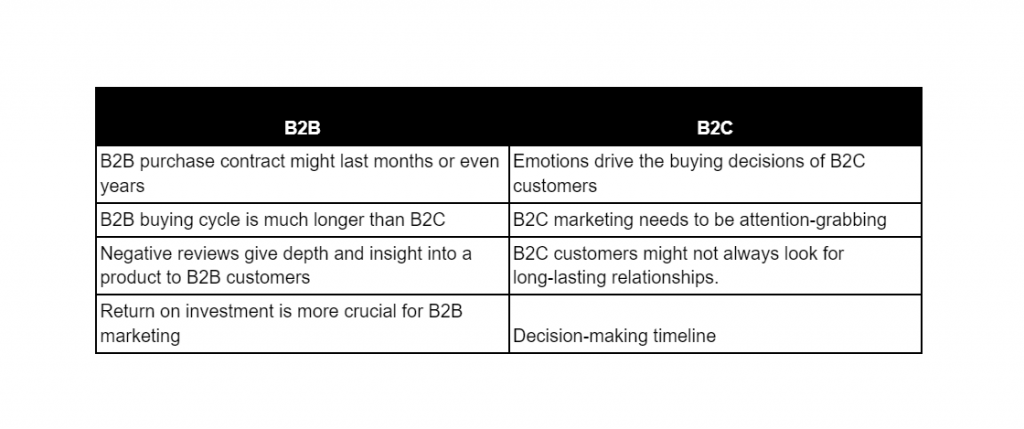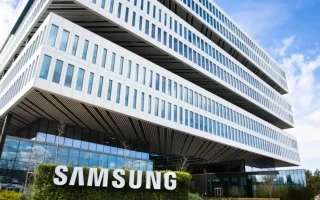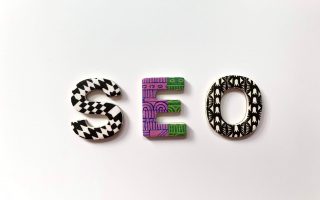The terms B2B and B2C marketing are often used interchangeably, but there is a big difference between the two. B2B marketing is about selling to businesses, while B2C marketing is about selling to consumers. While both types of marketing require a different approach, they also have a lot of similarities. In this blog post, we will explore the 10+ differences between B2B and B2C marketing. By the end, you should have a better understanding of which type of marketing is right for your business.
Table of Contents
The difference between B2B and B2C marketing
The main difference between B2B and B2C marketing is the way in which businesses market to their target customers. B2B marketing is focused on creating relationships between a business and other businesses, whereas B2C marketing is focused on creating relationships between a business and individual consumers.

Learn the key differences between B2B vs B2C marketing, and how they can alter your current marketing strategy.
B2B marketing involves a longer chain of command to deal with
B2B marketing involves a longer chain of command to deal with. In a business-to-business setting, there are usually more decision-makers involved in the purchase process. This can make it more difficult to get your message through to the right people. You need to make sure that you target your marketing efforts at the right level within the organization.
It can also be helpful to build relationships with key decision-makers within your target companies. This way, you can stay top of mind when they are ready to make a purchase. B2B marketing takes more time and effort than business-to-consumer marketing, but it can be extremely rewarding when done correctly. Programmatic SEO is the most effective strategy for startups to meet their marketing goals.
B2B purchase contract might last months or even years
The another main difference between B2B and B2C marketing is that B2B purchase contracts can be months or even years long, based on the project’s size and scope. For example, a construction company may enter into a contract with a steel manufacturer for the purchase of steel beams over the course of several years. Similarly, a software company may sign a contract with another software company to use their software for an extended period of time.
B2B buying cycle is much longer than B2C
The average B2B buyer will take much longer to make a purchasing decision than the average B2C buyer. This is because the stakes are often much higher in a B2B transaction. When a business is buying another business, there are usually more people involved in the decision and more money at stake.
There are a few reasons for this:
1) There is usually more than one decision maker involved in a B2B purchase. In most cases, the final decision will be made by a committee or board of directors. This means that each decision maker will need to be convinced of the merits of the purchase before it can be approved.
2) The price of a B2B purchase is often much higher than a comparable B2C purchase. This means that businesses need to be sure that they are getting value for their money before they commit to a purchase.
3) The products or services being purchased are often mission-critical for the business. This means that any downtime or problems with the product could have serious consequences for the company. As such, businesses need to be sure that they are making the right choice before they commit to a purchase.
Negative reviews give depth and insight into a product to B2B customers
B2B customers want to know the pros and cons of a product before they make a purchase, and negative reviews can provide that insight. While it may be tempting to delete or ignore negative reviews, they can actually be beneficial to your business.
Negative reviews can show that you’re taking customer feedback seriously and are willing to improve your products. They also give potential customers a more realistic view of what to expect from your product. In some cases, negative reviews can even help you identify problems with your product that you were unaware of.
Of course, you don’t want to dwell on the negative or respond defensively to reviewers. But by acknowledging the good and bad aspects of your product, you’ll come across as honest and transparent – two qualities that are essential for any successful business.
Return on investment is more crucial for B2B marketing
As a business-to-business (B2B) marketer, your goal is to generate more leads that turn into customers. To do this, you need to create a strong marketing strategy and invest in the right tools and tactics.
One of the most important aspects of any marketing strategy is return on investment (ROI). This metric measures how much revenue your company generates for each dollar you spend on marketing.
For B2B marketers, ROI is even more crucial. That’s because the sales cycle for B2B products and services is usually longer than for consumer products. This means it can take longer to see results from your marketing efforts.
That’s why it’s so important to track your ROI carefully. By understanding which marketing activities are generating the most leads and customers, you can adjust your strategy accordingly.
There are a number of different ways to measure ROI, but one of the simplest is to track the number of new leads generated from each marketing activity. You can also track how many of those leads turn into customers.
Another way to measure ROI is to calculate your customer lifetime value (LTV). This metric measures how much revenue a customer will generate over the course of their relationship with your company.
LTV is especially important for B2B marketers because it allows you to see not just the immediate results of your marketing efforts, but also their long-term potential.
Marketers must understand their target demographic
A marketer’s target demographic is the group of people they are aiming their marketing efforts towards. This could be a specific age group, gender, income level, location, or any other defining characteristic. It is important for marketers to understand their target demographic because it will help them to tailor their marketing messages and strategies to better appeal to that group.
For example, if a marketer’s target demographic is young adults aged 18-24, they will want to focus on platforms and channels that are popular with that age group. They will also want to use language and images that appeal to that demographic. Understanding one’s target demographic is an essential part of effective marketing.
B2C marketers should not use industry jargons when selling to customers
It is important for B2C marketers to avoid using industry jargon when selling to customers. Jargon can be off-putting and confusing to customers, who may not be familiar with the terms used. By avoiding jargon, marketers can ensure that their message is clear and easy to understand.
In addition, using jargon can make it difficult for customers to relate to the product or service being offered. Customers want to feel like they are understood, and using industry jargon can make it seem like marketers are speaking a different language. This can alienate potential customers and make them less likely to purchase the product or service.
Marketers should focus on communicating clearly and concisely with their audience. They should use simple language that everyone can understand. When in doubt, it is always better to err on the side of simplicity. Using jargon will only serve to confuse and frustrate customers, which is not good for business.
Emotions drive the buying decisions of B2C customers
B2C customers are driven by their emotions when making buying decisions. They want to feel good about their purchase, and they want to be sure that they are getting the best possible value for their money.
When a B2C customer is considering a purchase, they will often base their decision on how the product makes them feel. If a product makes them happy, or if it solves a problem they have been having, they are more likely to make the purchase.
B2C customers also respond well to marketing that appeals to their emotions. Ads that make them laugh, or tug at their heartstrings, are more likely to get their attention than ads that simply list facts about the product.
So, if you want to sell more products to B2C customers, focus on creating ads and content that speak to their emotions. Show them how your product will make them feel, and why it is worth spending their hard-earned money on.
B2C marketing needs to be attention-grabbing
B2C marketing needs to be attention-grabbing. It’s the only way to get customers to take notice of your product or service. Traditional marketing methods like print ads, TV commercials, and radio spots are no longer as effective as they once were. The average person is bombarded with over 5,000 marketing messages every day, so you need to find a way to stand out from the crowd.
One of the most effective ways to grab attention is through content marketing. Content marketing is a form of marketing that focuses on creating and sharing informative or entertaining content in order to attract and retain customers. It’s an excellent way to build brand awareness and create a positive association with your company in the minds of potential customers.
Some tips for creating attention-grabbing content include:
1. Write headlines that make people want to click
2. Use strong visuals that are visually appealing and relevant to your topic
3. Use storytelling to engage readers emotionally
4. Create helpful or entertaining videos that people will want to watch
5. Share infographics that are easy to understand and share
Related: 2023 SEO Trend Predictions
B2C customers might not always look for long-lasting relationships.
B2C customers might not always look for long-lasting relationships. They might be more interested in finding a good deal on a product or service and then moving on. This is why it’s important for businesses to focus on creating a great customer experience and providing value at every interaction.
It’s also important to remember that B2C customers are individuals, not just numbers. They have their own unique needs and wants, so businesses need to tailor their marketing messages accordingly. Segmenting your audience and personalizing your approach can go a long way in building strong relationships with B2C customers.
Decision-making timeline
The decision-making process for marketing campaigns can be divided into three distinct stages: pre-campaign, campaign, and post-campaign.
Pre-campaign planning involves setting objectives, researching the target market, and developing a strategy. This stage also includes budgeting and deciding which channels will be used to reach the target audience.
During the campaign stage, marketers execute the plan and track progress against objectives. This is when they create and distribute content, run ads, hold events, and so on. It’s also when they measure results and make adjustments to the plan based on what’s working (or not).
Finally, post-campaign analysis helps marketers understand what worked well and why. This information can be used to improve future campaigns.
The benefits of B2B Marketing
The benefits of B2B marketing are many and varied, but can be summarized as follows:
1. Increased reach: By targeting businesses instead of consumers, you can expand your potential customer base exponentially.
2. Greater ROI: Businesses are more likely to invest in products and services that will help them save time or money, so your marketing efforts are more likely to result in sales.
3. Improved brand recognition: B2B marketing can help you build a strong reputation for your brand, which can lead to increased sales down the line.
4. More targeted approach: When you market to businesses, you can tailor your message to their specific needs and pain points, making it more likely to resonate with decision-makers.
5. Increased opportunities for cross-selling and upselling: Because business customers typically have larger budgets than individual consumers, they’re more likely to make follow-up purchases or invest in additional products and services that complement what they’ve already bought from you.
Related: Programmatic Advertising: What Is It, How Does It Work?
The benefits of B2C marketing
B2C marketing is the direct marketing of products or services to consumers. This type of marketing is important because it allows businesses to establish a direct relationship with their customers. Additionally, B2C marketing can be used to build brand awareness and generate leads for businesses.
There are many benefits to B2C marketing, including:
1. Increasing sales: B2C marketing can be used to increase sales by promoting special offers and discounts directly to consumers.
2. Building brand awareness: B2C marketing can help businesses build brand awareness by reaching out to consumers through various channels, such as social media, email, and print advertising.
3. Generating leads: B2C marketing can be used to generate leads for businesses by creating targeted campaigns that reach out to potential customers.
4. Fostering loyalty: B2C marketing can help businesses foster loyalty among their customer base by building relationships with them through direct communication.
The key strategies of B2B Marketing
There are a few key strategies that are essential for any B2B marketing campaign. Firstly, it is important to target the right audience. This means understanding who your ideal customer is and what their specific needs are. Secondly, you need to create relevant and compelling content that will resonate with your target audience. This could be in the form of blog posts, infographics, or even videos. Finally, you need to make sure that your website is optimized for search engine ranking so that potential customers can easily find you online. By following these simple steps, you can ensure that your B2B marketing campaign is a success.
The key strategies of B2C marketing
In order to market successfully to consumers, businesses need to understand the key strategies of B2C marketing. These strategies include understanding consumer behavior, targeting the right audience, and creating compelling content.
Understanding consumer behavior is crucial for businesses that want to succeed in B2C marketing. By understanding how consumers make purchasing decisions, businesses can tailor their marketing messages and offerings to appeal to this behavior. Additionally, businesses need to be aware of any changes in consumer behavior so they can adjust their strategies accordingly.
Targeting the right audience is another important aspect of B2C marketing. businesses need to segment their target audiences and create messages that resonate with them. Additionally, businesses should consider using marketing channels that are most likely to reach their target audiences. For example, if a business is targeting young adults, they may want to use social media as a marketing channel.
Finally, businesses need to create compelling content in order to capture the attention of consumers. This content should be relevant and useful to the target audience and should also be visually appealing. Additionally, businesses should ensure that their website is easy to navigate so that consumers can easily find the information they are looking for.
Make Vision Clear helps you increase conversions and generate revenue with proper marketing to help you reach your marketing objectives.
Conclusion
The key difference between B2B and B2C marketing lies in the fact that B2B marketing is about building long-term relationships with other businesses, while B2C marketing is focused on selling products or services to consumers. While both types of marketing require a solid understanding of your target audience, the strategies and tactics used in each are quite different. If you’re not sure which type of marketing would be best for your business, consider talking to a professional marketer or taking some time to do your own research. With a little effort, you should be able to identify which type of marketing will be most effective for your company.




What an excellent weblog. I love to read through by way of blogs that instruct and also thrill folks. Your website article is actually a shocking item of composing. There are actually just a few authors that comprehend about composing in addition to you are literally the one particular among the all of these. I Also compose weblogs on numerous niches in addition to try out to become a fantastic report writer like you. Below is my weblog article about Aston Martin Repair service Dubai. You could study it in addition to talk about it to guide me Furthermore. I actually enjoy if you see my running a blog site, endure together with provide opinions! Many many thanks.
Thank you for your thoughtful and kind words! I’m glad to hear that you enjoyed reading the blog and found the content to be engaging and informative. It’s always a pleasure to share my knowledge and insights with others, and I’m glad that you found the article helpful. I’ll definitely check out your blog on Aston Martin repair service in Dubai – thank you for sharing it with me. I’m always looking to learn and improve, so I welcome any feedback or suggestions you may have. I’m glad that you’re also interested in writing and creating engaging content. It’s a rewarding and challenging field, and there are always new things to learn and discover. Keep up the great work, and I hope to read more of your writing in the future!